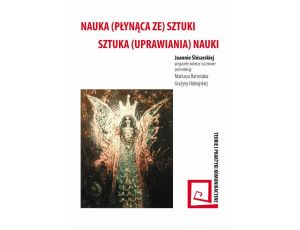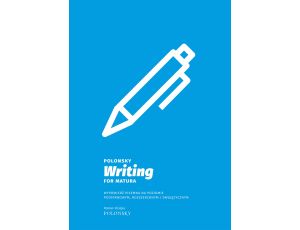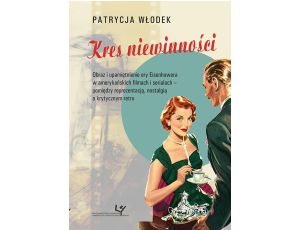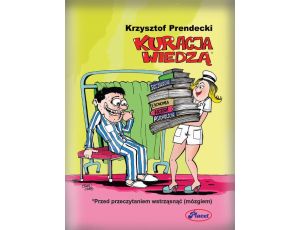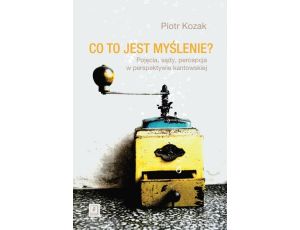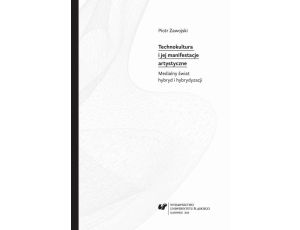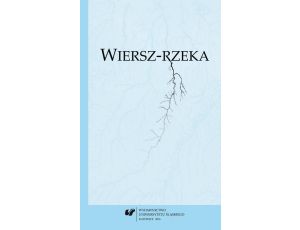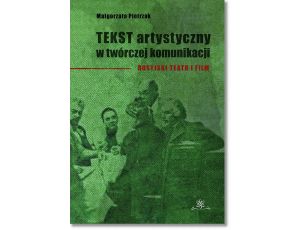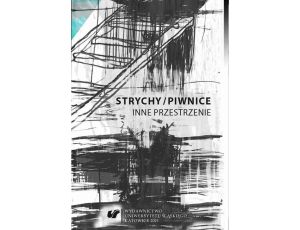Opis produktu
Opinie
Trickster Strategies in the Artists’ and Curatorial Practice consists of 34 studies prepared in collaboration between the Institute of Art History of the University of Wrocław and the Polish Institute of World Art Studies.
A rascal, swindler, jockey, hooligan, or simply a trickster has immense merits in the field of art. In our times, trickster strategies are eagerly used in revealing power relations in post-communist and post-colonial countries. The purpose of this book is not to reconstruct full trickster discourse, from archetypal cultural texts and characters such as Egyptian Seth or Greek Hermes to interpretations of such outstanding 20th century scholars as Claude Levi-Straus or Sigmund Freud (though chapter I History of Trickster. Urban Myths and Events offers elementary stages of a subject), its aim is rather to check how a situation of continuous and deep historical changes affected both art and art narratives (chapter II: Role of Trickster in Post/-Communist and Post-Colonial Countries; chapter III: Outdoor Activism); why a trickster impersonates not only an artist and a curator (chapter V: Curatorial Performances), but even a narrator of a story. The purpose of this book is also a meta-theory – to reflect on art history and on the self-awareness of art historians: how to retell the images we know in a different way (chapter VI: In Between Different Domains and Spaces), and how new narratives enable us to notice something we have ignored before (chapter IV: Trickster and gender).
A trickster does not offer us a universal remedy to a mere academism. But the figure of the trickster efficiently unveils hypocrisy. Not solving any problems, today, tricksters however add fuel to the flames when they participate in various contemporary hot debates. The trickster, as an ambivalent persona, not locating itself beyond the analyzed system, makes us aware of its functioning, its spreading of prejudices and of its value systems.
Spis treści:
From the Editor: ANNA MARKOWSKA, Trickster in democratic and non-democratic systems; - History of Trickster. Urban Myths and Events: BOŻENNA STOKŁOSA, Trickster – mythical deity, archetype and figure of a creator; TOMASZ GRYGLEWICZ, Trickster or jester/clown?; WALDEMAR OKOŃ, Tricksters and others; KATARZYNA ZIMNA, Tricksters lead the game; ANNA ŻAKIEWICZ, Witkacy – a perfect trickster; JERZY LUTY, The demilitarization of language: a serious musical concern. John Cage’s trickster strategy in Empty Words; MARTA SMOLIŃSKA, Tricksters in Poznań: Penerstwo and The Krasnals; PATRYCJA GWOŹDZIEWICZ, Lady or trickster with an ermine. Review of actions around the most famous picture in Polish collections; - Role of Trickster in Post/-Communist and Post-Colonial Countries: IRINA GAVRASH, Subversive strategies in contemporary Russian art; NIKO ANKLAM, Masks and Camouflage. Some notes on a postcolonial in-between space of the trickster; KAMILA WRÓBEL, Hero’s revolutionary song. Istvan Kantor aka Monty Cantsin; JILL GIBBON, War Mart: trickster strategies in war art and the arms trade; MAŁGORZATA MICUŁA, „Professional Bad Guys”: the rebellious British and Polish art in the context of changes in the Nineties; - Outdoor activism: PATRYCJA PIRÓG, Trickster on Polish Street; GILLIAN WHITELEY, Political pranksters, provocateurs and Pan-Ic: re-connecting countercultural practices; DOMINIKA BISZCZAK-KULCZYCKA, Defense of the cross - a spontaneous social movement or artistic provocation?; MAGDALENA ZIĘBA, Trickster games in the public space. Between art and culture jamming; MAGDALENA WORŁOWSKA, Cecylia Malik's anarchic and mischievous actions, inspirations and related situations; - Trickster and Gender: IZABELA KOWALCZYK, Vulnerable masculinity in the works of young Polish artists; MAŁGORZATA JANKOWSKA,The female trickster: on the artistic strategies of Natalia LL; AGNIESZKA ŻECHOWSKA, Beast in the claws of Europe: Aleka Polis’ art; EWELINA JAROSZ, “Newman”: a trickster in every sense of the word!; - Curatorial Performances: IRINA HASNAȘ HUBBARD, Curatorial performances. Looking for trickster curators in museums in Romania; PATRYCJA SIKORA, PIOTR STASIOWSKI, Swindlers, rascals and parasites; WOJCIECH CIESIELSKI, Three gaps in the process?; MIHAELA-LUCIA ION Curatorial project: the communication between the public and the artists; FILIP PRĘGOWSKI, Angry tricks. On Kazimierz Piotrowski’s exhibition in the Centre of Contemporary Art in Toruń; EWELINA KWIATKOWSKA, Love me - if you don’t I will force you! Artist’s and curator’s strategies on the example of the vernissage exhibition of Izabella Chamczyk in Arttrakt gallery: - In Between Different Domains and Spaces: IRMA KOZINA, Trickster strategies in critical design; CEZARY WĄS, "Trick" and "Click" - Peter Eisenman’s design strategies; JANUSZ ANTOS, An artist and a library. Bibliophilia in contemporary Polish art; MONIKA SAMSEL-CHOJNACKA, The figure of trickster in crime novels by Henning Mankell, Stieg Larsson and Jo Nesbø; ROB IRVING, Art, artifice, articulations: the trickster as a methodological principle of artists performance in ritual transactions with the orderly.
Cechy
| Rodzaj: | e-book |
| Format pliku: |
|
| Autor: | Anna Markowska |
| Język publikacji: | angielski |
| Rok wydania: | 2012 |
| Liczba stron: | 302 |
| Miejscowość: | Warszawa |
| Redakcja: | Anna Markowska |
| Serie: | WORLD ART STUDIES. CONFERENCES AND STUDIES OF THE POLISH INSTITUTE OF WORLD ART STUDIES |
